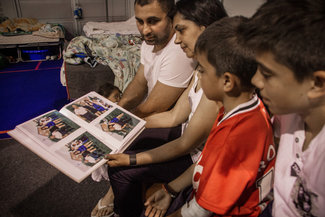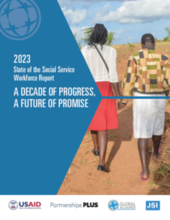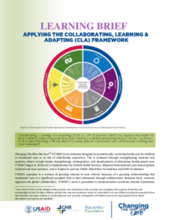

Displaying 101 - 110 of 1071
Ukrainian officials have condemned a new decree signed by Russian President Vladimir Putin in early 2024 simplifying the process of conferring Russian citizenship on Ukrainian children abducted from wartime Ukraine.
Ukraine has condemned a decree signed by Russian President Vladimir Putin making it possible to confer Russian citizenship on Ukrainian children moved to Russia. Last March, the International Criminal Court issued an arrest warrant for Putin over Russia's policy of forced child deportations. The Ukrainian foreign ministry called the decree illegal.
This report examines the evolution of social service workforce strengthening in the light of the three core pillars of the Social Service Workforce Strengthening Framework: planning, developing and supporting. It identifies significant progress and accomplishments that have been made to strengthen the social service workforce at the global level as well as in three specific countries: Romania, Uganda and Viet Nam.
Since care reform is a long and complex process, requiring collaboration between many diverse actors, with different change pathways in diverse contexts, the Changing the Way We Care initiative set out to learn from different demonstration countries, build national and regional knowledge, and reinforce global momentum for family care. This learning brief describes some of that journey.
This brief shares how the initiative used CLA related to the social service workforce strengthening and case management.
TALLINN, Estonia — Belarus' authoritarian president on Thursday attended a government-organized meeting with children brought from Russia-controlled areas of Ukraine, openly defying an international outrage over his country's involvement in Moscow's deportation of Ukrainian children.
Wounded in the eye from an explosion, Oleksandr Radchuk, an 11-year-old Ukrainian boy from the destroyed city of Mariupol, waited calmly in a tent while Russian soldiers interrogated his mother.
Anastasia was living in Zaporizhzhia and was pregnant with Dorothy and Charlie’s baby. Then Russia invaded and she knew she had to escape to save the child
Judge Raul Pangalangan International Criminal Court Judge (2015 – 2021)
Daniela Mamaliga, Director of Partnerships for Every Child, presents the findings and conclusions of a comprehensive 2022 financial assessment conducted by CTWWC in six residential institutions. The financial assessments aimed to inform political decisions on the future of the six institutions, including their transformation/reorganization plans. Ms. Mamaliga highlights that though the average annual cost for caring for a child is increasing in all six institutions, even as number of children and staff is decreasing in some of them.
“When we talk about equity and efficiency and what is right for children, when we provide services to families and children, we need to make sure that we are not just investing wisely, but that we are reaching


